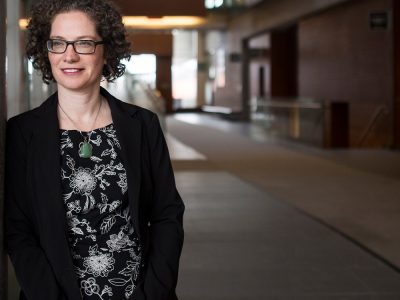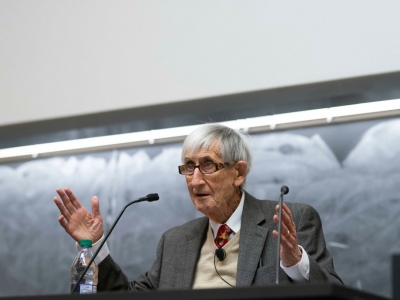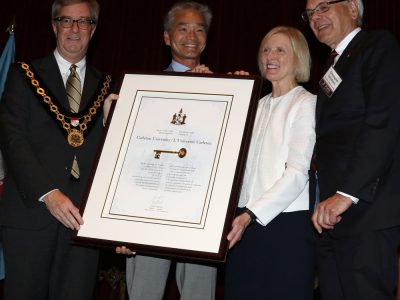By Joseph Mathieu
Photos by Maddie McCrady
The Carleton U Community Connections event’s genial atmosphere began with a land acknowledgement from Mohawk Traditional Teacher Paul Skanks.
Between morning coffee and collaborative workshops, the Mohawk elder and member of the Ottawa Aboriginal Coalition gave thanks to all things that allow people to thrive in communities, and encouraged every attendee to greet and welcome their neighbours with a hug or handshake.
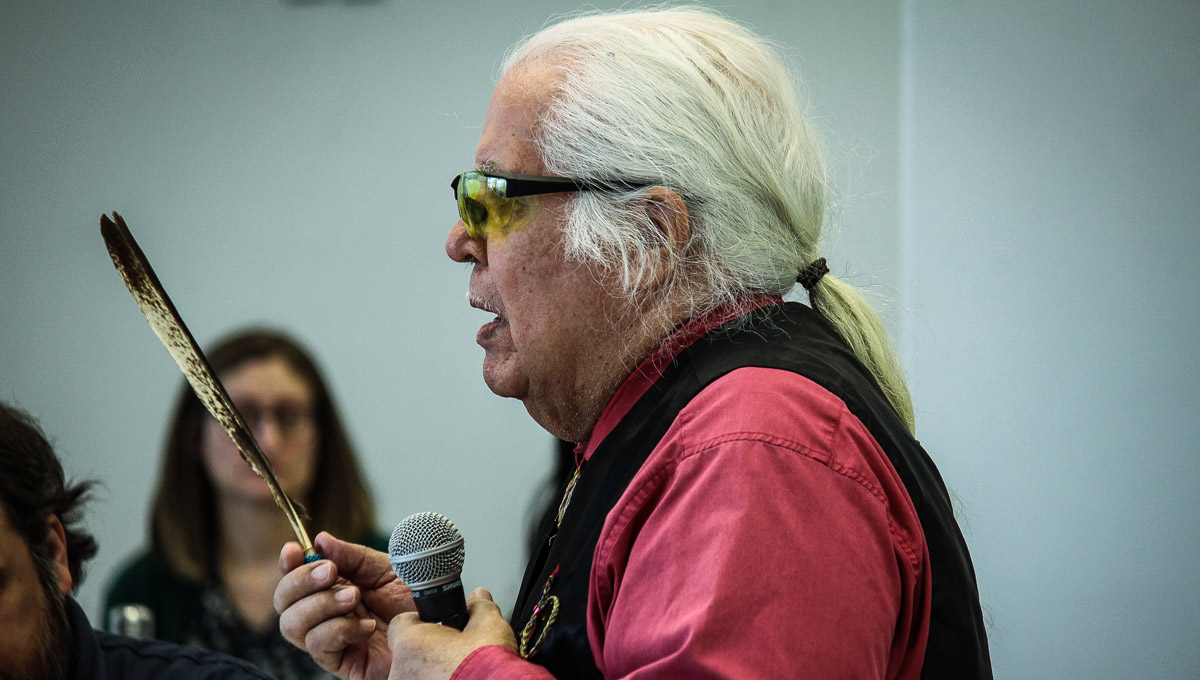
Paul Skanks
“He set a tone that gave life to the whole morning,” said organizer and Political Science Prof. Peter Andrée.
The fifth annual networking event on March 27, 2019 brought together 140 people to Carleton University’s MacOdrum Library. Staff, students and faculty intermingled with representatives from community-based organizations that included Bruyère Continuing Care, the Mental Health Commission of Canada, the Ottawa Coalition to End Violence Against Women, Impact Hub Ottawa and the Ottawa Mission.
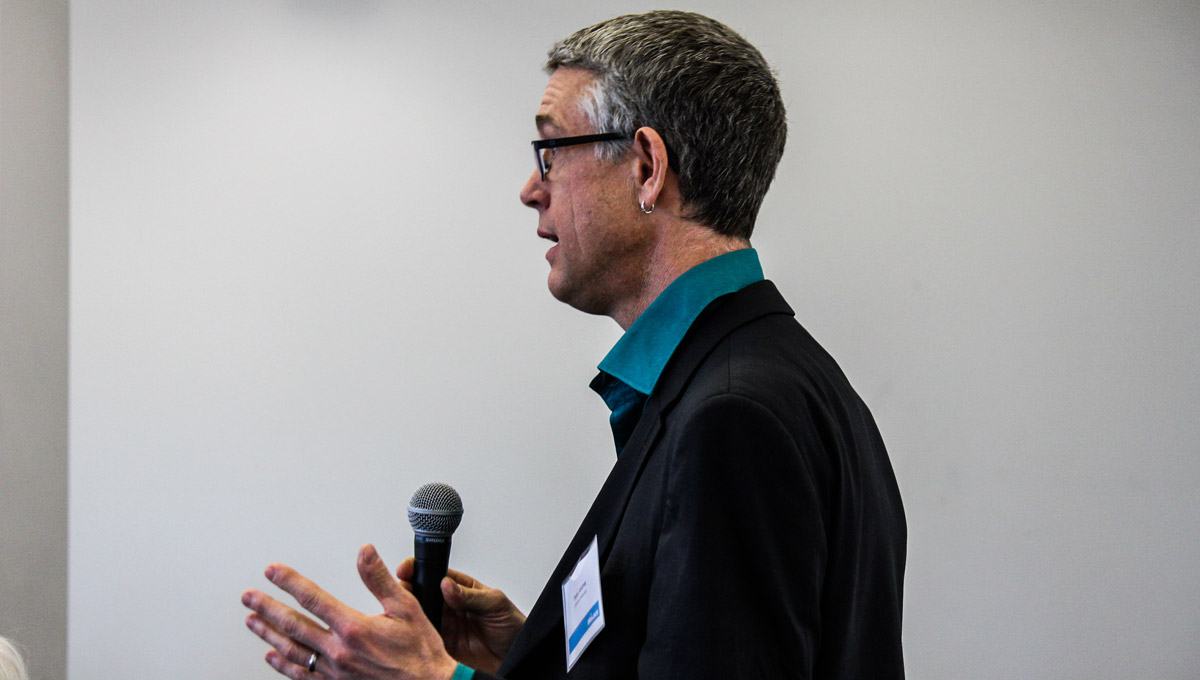
Prof. Peter Andrée
“Ultimately this whole event is intended to allow you to connect with one another, to meet somebody new and to think what might come of that,” said Andrée, who also chairs Carleton’s Committee on Community Engaged Pedagogy (CCEP). This event helps advance research and support innovation and community development according to Andrée, while also creating learning opportunities for both undergraduate and graduate students.
“This is an important event,” said Carleton President Benoit-Antoine Bacon. “Carleton was founded in 1942 by the community, for the community, and this is part of our DNA.”
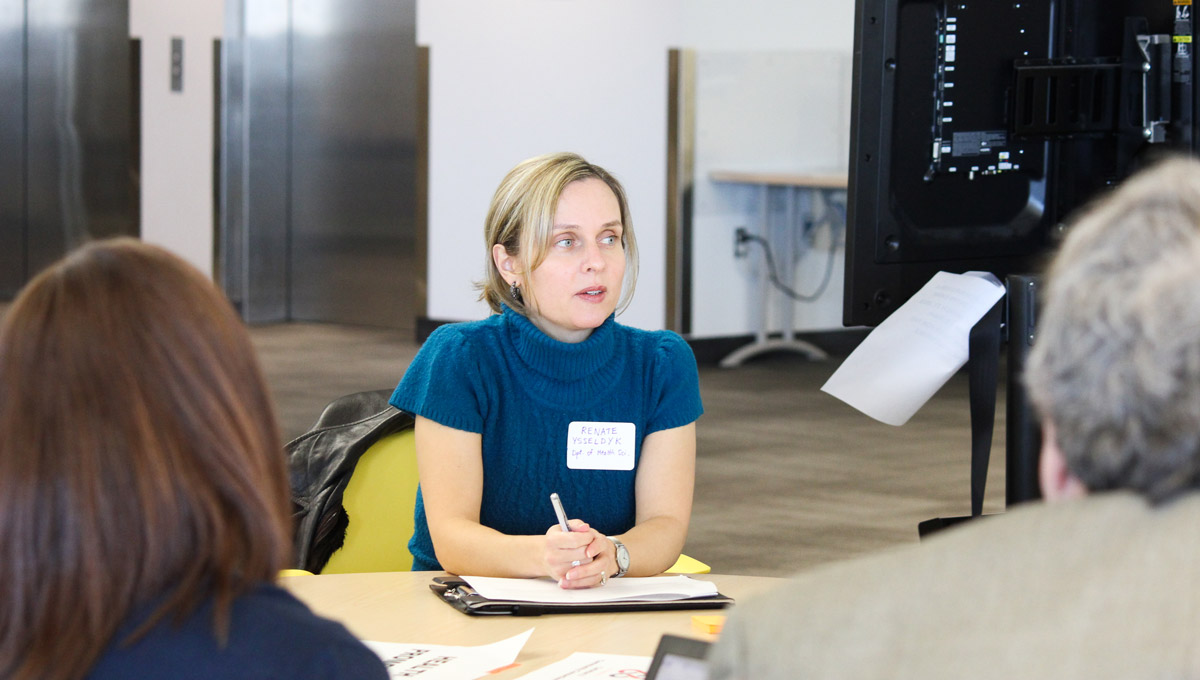
An Unintended Form of Networking
The diversity of students, faculty and staff from a wide range of Carleton departments also created an unintended form of networking. “It was great to see them connecting with community members,” said Andrée, “but it was neat just to see them connecting with one another around the topic of how to undertake effective and meaningful community partnerships.”
Participants spread out into themed workshops that explored the trials and triumphs of community engagement projects. A forthcoming CCEP report will encapsulate the lessons learned and best practices discussed in the workshops that covered topics like health promotion, safety and reducing crime, social justice, Indigenous partnerships, accessibility, and food systems.
At the lunch break, Provost and Vice-President (Academic) Jerry Tomberlin awarded a $500 prize to Victoria Bond, the winner of a student video competition on her and her health sciences classmates community engagement activities.
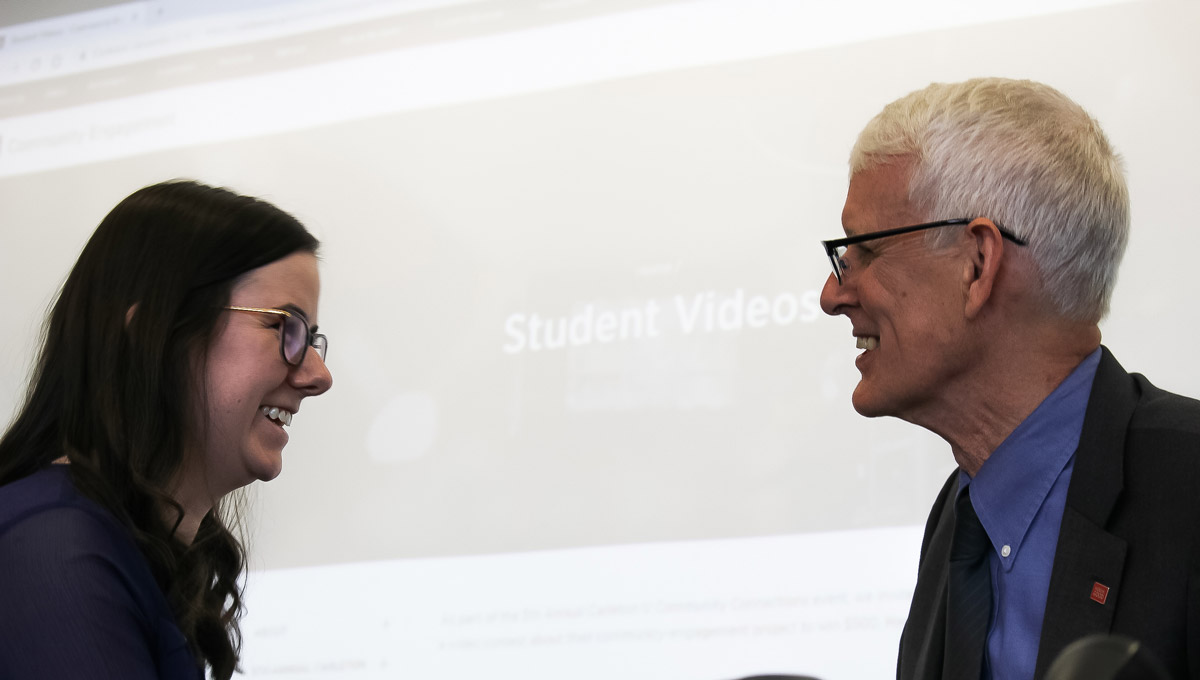
“We have over 2,500 students who are actively engaging with the community each year, and we have over 700 researchers,” said Andrée. “What we’re talking about today is an enormous amount of capacity here at Carleton University, and how to ensure that that capacity is harnessed and brought to bear on pressing social issues.”
The event also presented several new initiatives and projects to support a culture of community engagement. A user-friendly and comprehensive community-based organization research toolkit was launched for community organizations to connect with post-secondary partners to conduct research.
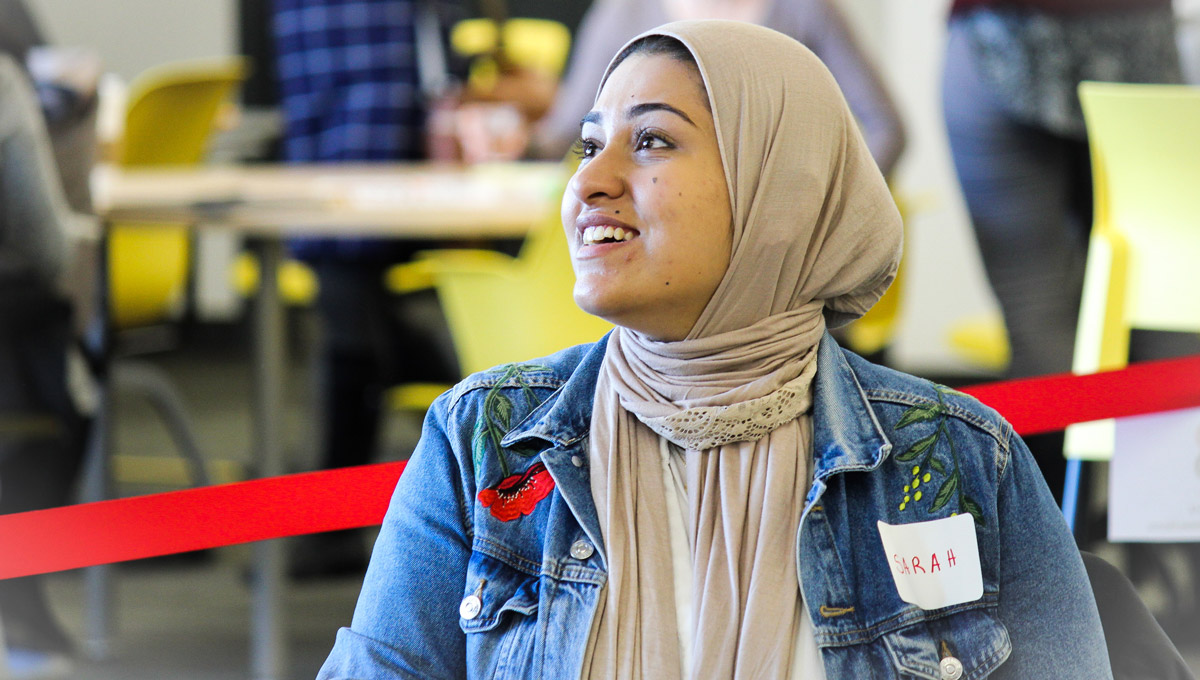
Assessing University Community Engagement
Bacon announced Carleton’s participation in a Canadian pilot of the Carnegie Community Engagement Classification, the leading framework for assessing university community engagement in America for the past 13 years. To date, 361 U.S. campuses have achieved the Carnegie classification. Carleton will be one of 16 Canadian institutions participating to help customize the framework to a Canadian context.
“It’s an elective classification,” he said, “that allows us to truly be explicit and intentional about the ways that we engage with our communities, following best practices that have been developed from all over the world.”
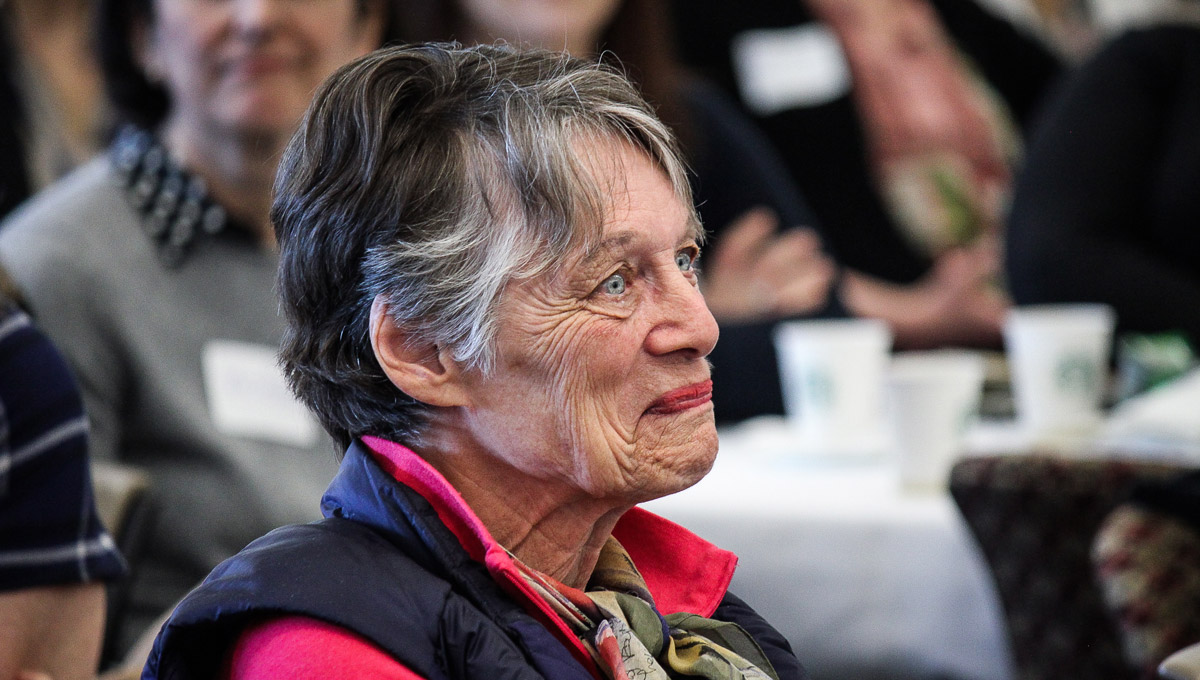
Mary Hegan
Carleton is also developing a digital strategy for community engagement to launch an interactive online portal for the general public to find and connect with Carleton researchers and students to collaborate on specific engagement opportunities.
“Carleton is committed to community campus engagement,” said Mary Hegan of the Ottawa Eco-Talent Network. “I’ve felt it in my bones, you’ve heard it from our president.
“It’s time to walk the talk.”
Thursday, April 11, 2019 in Community
Share: Twitter, Facebook
